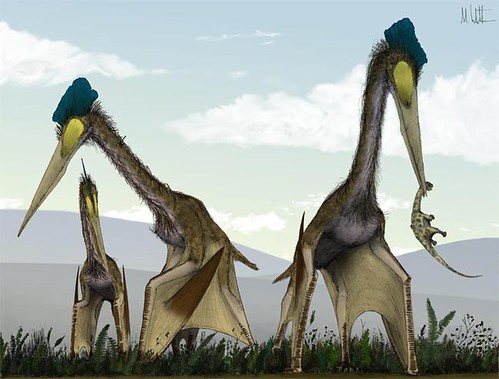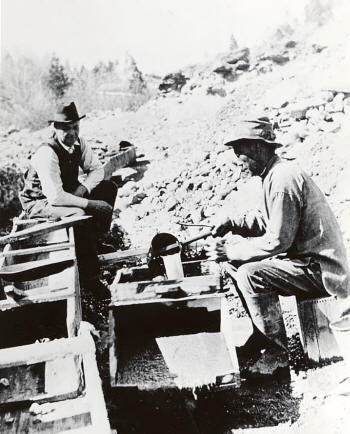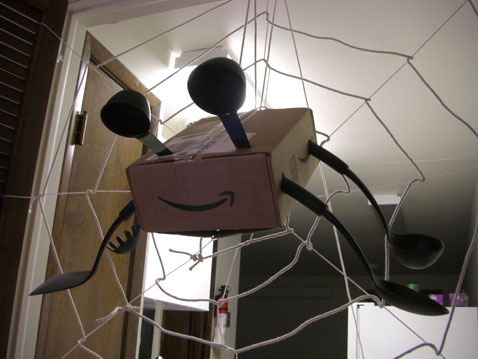
For starters, there's something cosmic about the Chandler-to-OKC trade. The Hornets hadn't quite had it this season, and I hate Byron Scott. Squelching Julian Wright is foolish. And now this, delivering a big man recently considered Olympic-ish material into the mitts of the most FD team since the '06-07 Warriors. If the word "FD" still means anything, or remotely the same thing, in this very different league we live in. So go ahead and type it with me, because I know you've been saying it in your head since yesterday:Kevin&Jeff&Russell&Tyson&Blake. That, my friends, is a monster.
However, as much as I'd (prophetically?) been down on New Orleans, you can't like what this says about the direction the league is headed. I already did a TSB post on it, coming to the conclusion that we're headed toward baseball. Combine that with the Morey/Battier revelations, and this week we're practically staring down the barrel of the future of front offices.
First, you've got the Thunder, a bandwagon you need to be finding if you haven't tracked it down already. All the payroll went to heaven, causing much controversy and embarrassment, or was of the walking corpse variety—save for the rookie contracts belonging to the team's nucleus. And now, even if Chandler improves them greatly, OKC's most likely landing a choice lottery pick. A once-in-a-generation phenom—LeBron is the exception that proves everything, which is why Durant can still be once-in-a-generation—combined with very astute use of high picks, and one big contract stolen off of team's not blessed with such meager payroll. Will this last? No. Does it take a mastermind to pull off? Probably. Does that mean, in the wartorn economic future of the NBA, it's not a viable model? Only if there's a cheaper alternative that promises such a strong chance of competing. Blow the team up before it takes your hand with you, then start all over again. It's not nihilistic, it's living each second like it's your last, and having the balls to believe your front office can repeat the process every five years.

The Hornets now become the consummate underdog, handicapped by forces beyond their control but expected. One superstar, surrounded by passable role players and guided by a coach determined to make up the difference. If that sounds like the 2000-01 Sixers, congraulations. They went to the Finals, and so we can imagine the post-Chandler Hornets making a similarly inspirational push—provided they change coaches in the off-season. That's when you end up with a peculiar merger of "this is a league of stars" with "this is a league of coaches," where these proclamations apply only to the most elite, who in secret compacts join forces to overcome the system's strictures. That's the real lesson of those Sixers—that when you have a single-minded MVP and a stubborn coach with a fully-formed basketball worldview, it's hard to tell exactly who is establishment, which means they must both be out in the cold, tossing flaming bottles at something else.
You're right, I've skimped on baseball comparisons, because I can't always make them. But I do know that, if Morey's research comes to anything, you could find another model in which incomplete or flawed players are brought together to complete each other. Not the flawed or incomplete the FD book so concerns itself with—not towering figures with great, bleeding holes in their sides. Instead, a team of guys who are at once, like Battier, useful and detrimental, but without any hierarchy. Such that no single individual, or his flaws, can overwhelm the balance of the whole. It's often said that D'Antoni's ideal team is comprised of 6'9" guys who can shoot, run, and pass. The Knicks may be one of the few teams that can do this, because as other teams look for efficient and affordable models, free agents will increasingly accumulate in one place willing to pay them an above average salary. Morey, though, could make due with a team of Battiers, provided one had just a little bit more scoring ability in place of a little less rebounding. But not too much. A team of multi-purpose yeoman immune to all yearning and glory, one that might eventually swallow up the likes of Marion and Odom.
Will we ever see this come to pass? That depends on how long the economic crisis lingers in basketball. Certainly, though, if teams suffer a major hit this year and the next, and the summer of 2010 finds the large market teams cashing in (sorry for the mixed, if not oppositional, metaphor), we might see contracts signed that extend a relatively brief window of disaster across the foreseeable. Who knows what will be discovered, or what will pan out? Front office philosophies could find themselves twisted into a grimace that, over time, becomes a sign of worldliness and thought most deep.
















No comments:
Post a Comment